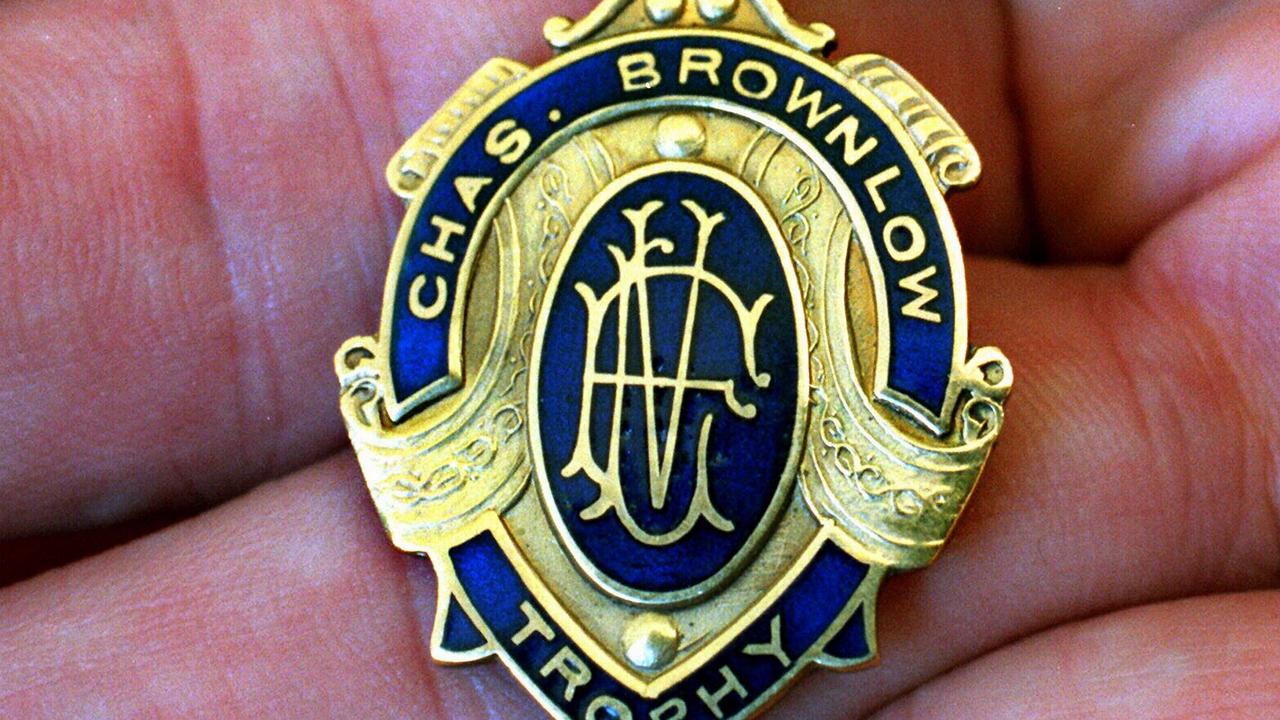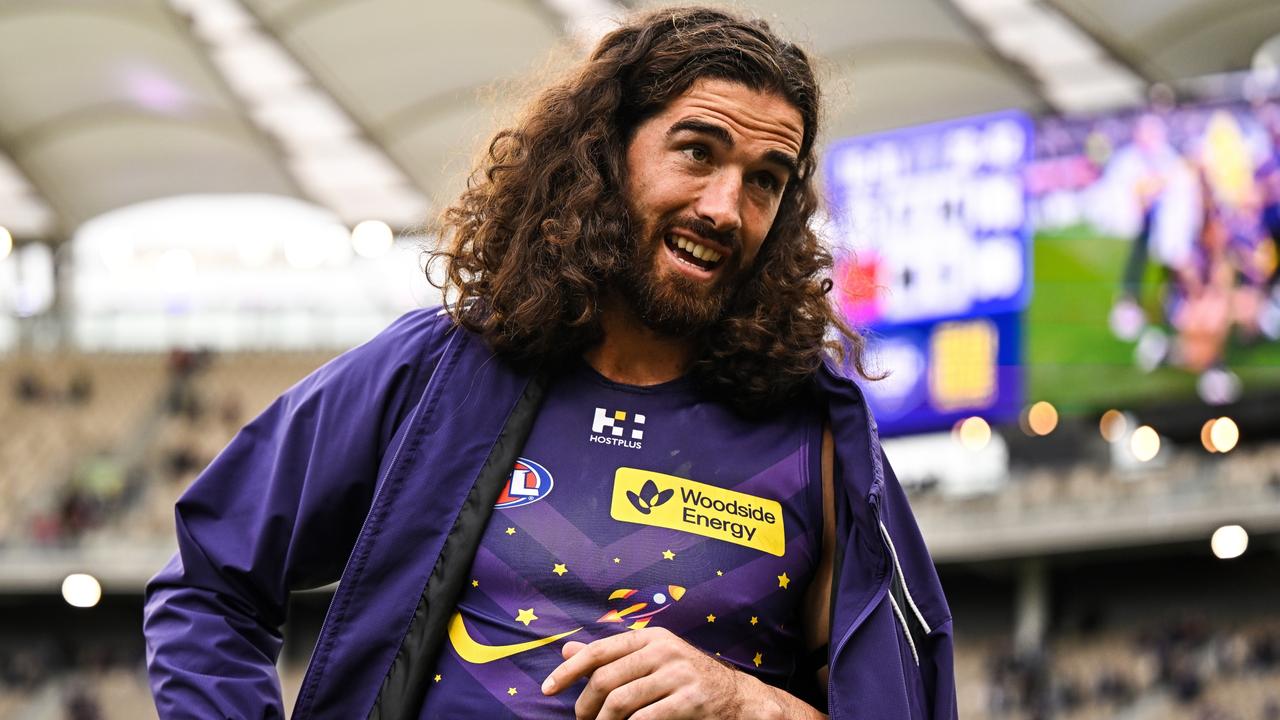Melbourne brain bank urges AFL stars to aid concussion research
AFL players have been asked to “pledge” their brains to a new Melbourne bank that aims to shed more light on the game’s concussion scourge amid alarming figures and revelations of brain disease in a pair of former NRL guns.
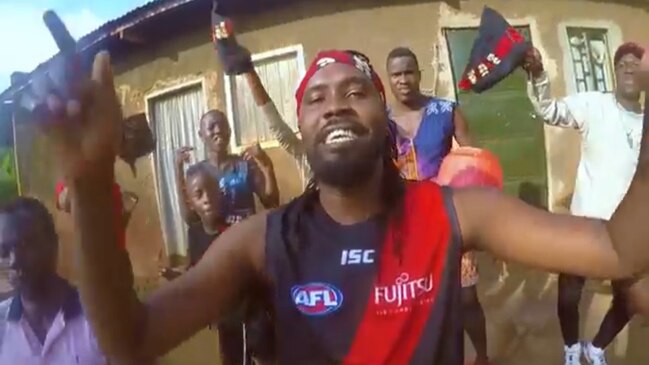
AFL
Don't miss out on the headlines from AFL. Followed categories will be added to My News.
Footy’s stars have been urged to donate their brains to science as a new study proving brain disease rocked the NRL.
Two unidentified former NRL stars were found to have the brain disease CTE, the first time it has been found in the sport. The evidence was published in a leading international neuropathology journal.
The progressive degenerative disease CTE has been found in athletes with repetitive brain trauma and concussions and is the subject of a billion dollar NFL lawsuit.
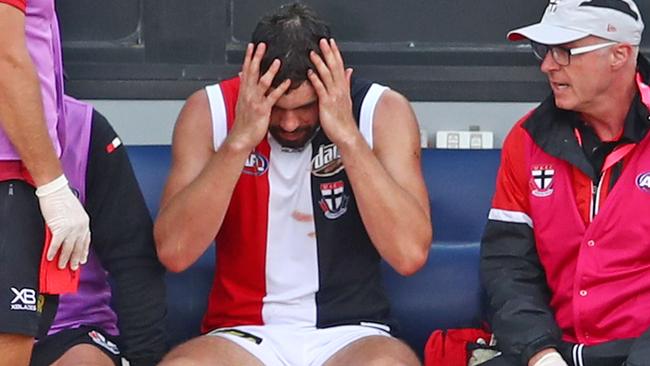
The call comes as alarming new statistics reveal 74 players suffered concussions in AFL matches last season — up from 63 in 2017.
Official injury figures, which do not include players concussed at training, reveal the game’s concussion scourge is on the rise, affecting an average of 4.11 players at every club.
Former AFL concussion researcher Alan Pearce last week launched the Melbourne branch of the Australian sports brain bank.
The Australian brain bank, led by associate professor Michael Buckland, has had 80 athletes donate their brains since it opened in March last year.
Pearce is already in discussions with some Melbourne ex-footballers about what he labels “pledging” their brains, which would involve immediate testing then examination of their brains when they die.
He says the aim is not to shut down football but aid research which could prove when players are ready to return to play from concussions, potentially saving or extending their careers.
“We are trying to get as many football players to pledge their brains,” Pearce said.
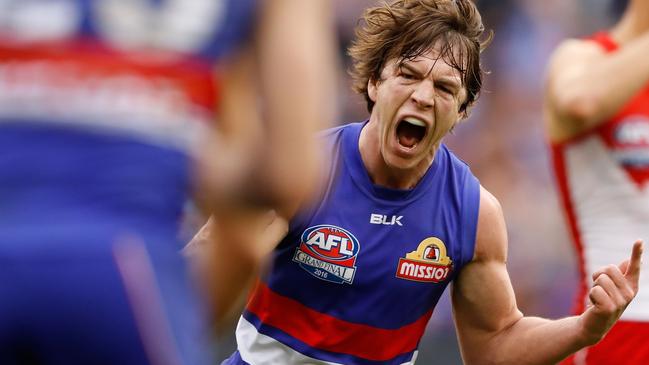
CAMPAIGN: AFL URGED TO GET SERIOUS ON CONCUSSION
LITIGATION: AFL CONCUSSION FIGHT IN COURT
“They will come for periodic testing because it could take 30 years before someone donates their brain so we need to build a clinical picture of their symptoms or progression, so it is a full research program around monitoring for CTE or Parkinsons.
“I think we are going to see cases of CTE from ex-AFL players at some point.
“We are not going to see it in anyone but the picture around the world is certainly pointing towards that.
“We need to see the evidence then we need to work out how we mitigate the risk.
“It’s never been about law suits, God no, it’s about science and trying to improve care and rehab which is also at non-elite levels.”
The AFL has been accused of playing dead on concussion research, with a minimum spend of $250,000 coming from player fines allocated to research each year.
“$250,000 is nothing. If you look at the research in concussion in America from the sports themselves and government and philanthropic organisations, it’s up to $100 million,” Pearce said.
“We might be at five per cent and it’s not enough and it needs to be independent people not directly linked with the sports themselves.”
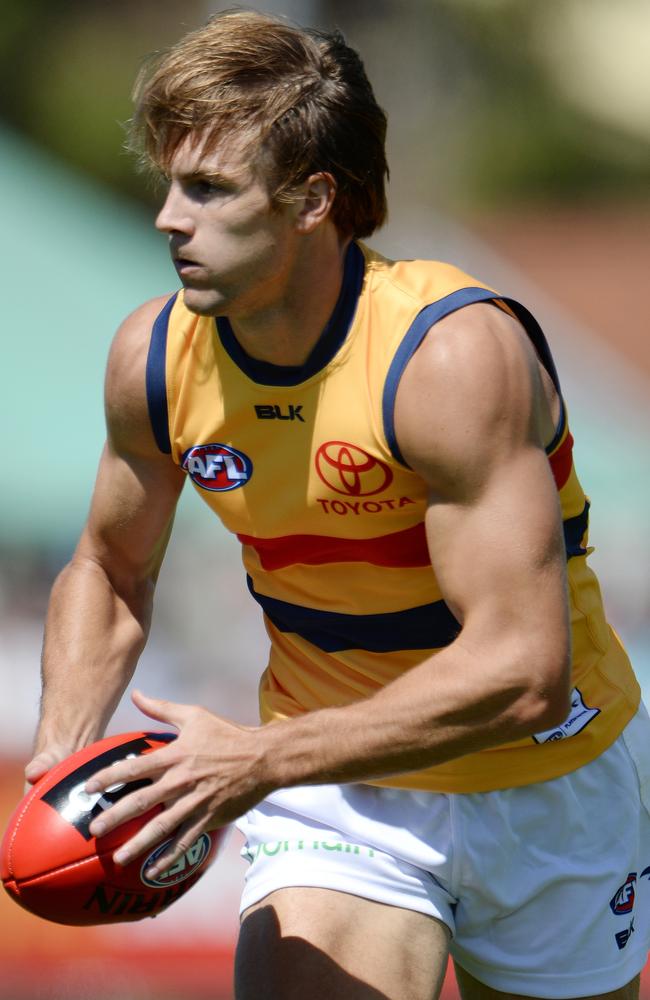
A host of AFL players including Western Bulldogs premiership hero Liam Picken have walked away from the game in recent times because of complications caused by head knocks.
St Kilda’s Paddy McCartin has also suffered a number of head knocks and is on the Saints’ long-term injured list.
Former Adelaide Crows player Sam Shaw lodged a concussion damages action against the club in the Victorian Supreme Court in April, while a larger class action involving up to 100 past VFL/AFL players is being led by lawyer and former Adelaide United chairman Greg Griffin.
“The brief is with the senior counsel,” Griffin said of the case yesterday.
Concussion rates in the AFL have been on the increase since the 2015 season when 52 players were reported to have suffered serious head knocks in matches.
McCartin, the game’s No.1 draft pick in 2014, opened up on the extent of his concussion-related symptoms in a disturbing interview last month.
He has played just 35 matches in four and a half seasons.
“I am just a shell of the person I was, really. I am just completely different,” McCartin said. “It is very concerning. I just can’t do basic things, really.
“Footy aside, I have lost my identity as a person, which is hard.”
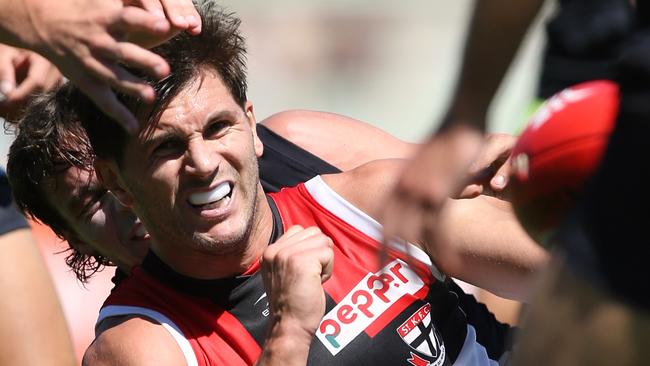
Former St Kilda midfielder Koby Stevens revealed in March he had used medicinal cannabis to help overcome the crippling concussion symptoms which ended his AFL career.
“I couldn’t even get up off a chair without falling over or leave the house for three months,” Stevens told the Herald Sun.
“Often I couldn’t sleep for days. I got put on a lot of medication to help my headaches and none of that helped and at times it made me worse.”
Evidence of Chronic Traumatic Encephalopathy, or CTE, was found in the two brains of deceased NRL players, both of whom played more than 150 first-grade games.
The Australian brain bank’s Michael Buckland was also the lead author in the study of NRL players and said it provided concrete evidence of the damage to players from repeated head injuries.
“I have looked at about 1000 brains over the last 10 years, and I have not seen this sort of pathology in any other case before,” he said.
“The fact that we have now seen these changes in former rugby league players indicates that they, and likely other Australian collision sports players, are not immune to CTE, a disease that has gained such high profile in the United States.”
* The AFL injury report found injuries across the competition continue to climb, with the 18 clubs losing players for an average of 163.5 weeks last season — a jump of 16 per cent.
Hamstrings remain the game’s No.1 injury curse, accounting for 28 per cent of all games missed.
Hamstring recurrences, like the one that has sidelined Richmond skipper Trent Cotchin this season, are up 20 per cent.
“These are the highest rates we have seen for a number of years,” the report said.
Recurrence of plantar fascia ruptures are also up a concerning 67 per cent, an injury often linked to hard surfaces.
Originally published as Melbourne brain bank urges AFL stars to aid concussion research

